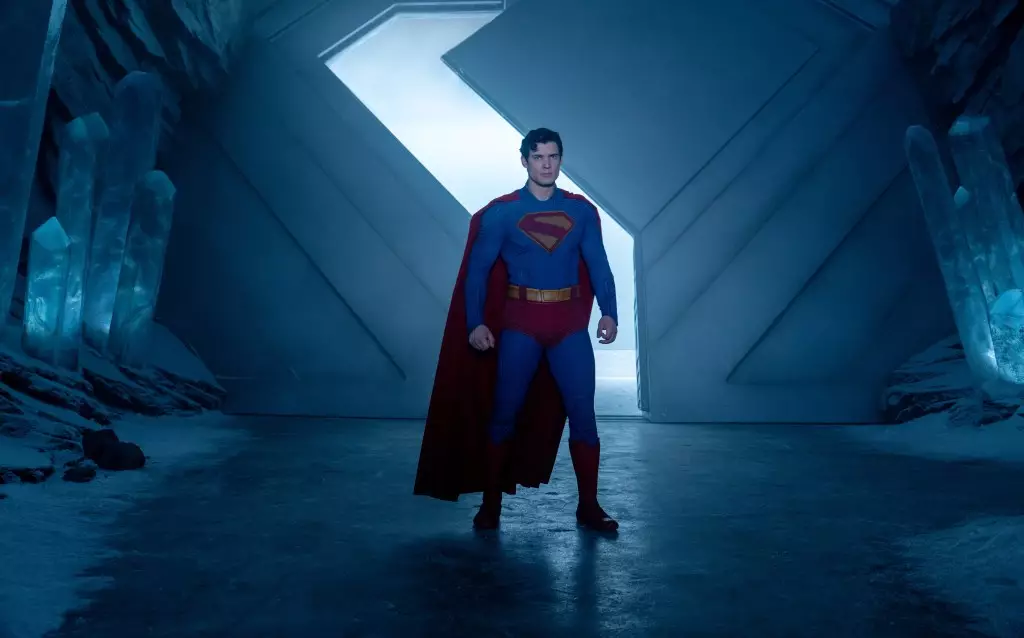While the recent box office figures for Warner Bros.’ Superman reboot paint a picture of triumph, they are, in reality, a complex tapestry of hype and inflated expectations. The film’s initial international opening—across 78 territories—may seem impressive at first glance, but deeper analysis reveals a lack of genuine cultural resonance and long-term engagement. A few million here and there are often used as evidence of success, yet these figures fail to address the film’s overall reception, audience fatigue, or the sustainability of its blockbuster status. Relying solely on early grosses ignores a critical question: will this Superman reboot establish a lasting franchise, or is it merely a fleeting distraction in a saturated market?
The Oversimplification of Regional Performances
Diving into regional specifics uncovers disparities that the studio conveniently glosses over. France’s $1.3 million early start, buoyed by Bastille Day celebrations, is a temporary boost that hinges on seasonality rather than film quality. Similarly, Korea’s $700,000 debut, a market historically depressed for American blockbusters, demonstrates that even strong relative figures do not necessarily translate into cultural dominance. The fact that Korea’s cumulative from this release hovers around $1.7 million suggests a modest impact at best. Meanwhile, markets like Italy, Indonesia, and the Philippines reported strong premières, but their results—though promising—are part of a bigger puzzle that often reflects regional preferences rather than a universal appeal.
The Myth of Dominance in Divergent Markets
Claims of Superman’s international dominance are often exaggerated by focusing on select countries. Mexico’s $2.2 million opening and Brazil’s $2 million are highlighted as major milestones, yet such figures, when viewed through a broader lens, are comparable to other recent superhero releases. This illustrates the structural issue: superhero movies are increasingly predictable performers, better at maintaining existing audiences than creating new fans. Market-specific data such as Australia’s $1.3 million or Thailand’s $631K show that regional appetites are inconsistent, and the so-called “global success” is merely a patchwork of strong starts in select territories.
The Temptation of Framing Early Performance as Lasting Legitimacy
studios often rely on initial frontloaded grosses to claim victory, but immediate box office numbers are a poor predictor of long-term success. Huge openings signal hype rather than polish; they reflect the current “superhero fatigue” or heightened marketing efforts. The true test for Warner Bros. is whether the film can sustain momentum beyond the initial weeks—something many blockbuster attempts have failed at. Jumping to conclusions based on these early statistics ignores the nuanced reality that audiences are increasingly discerning and critical of too much franchise recycling, especially when the core character’s essence is diluted or compromised for financial gains.
Superman as a Reflection of Studio Strategy and Cultural Capital
The reboot’s tepid global response underscores a larger problem: Warner Bros. and DC are caught in a cycle of over-reliance on nostalgia and brand recognition, rather than artistic innovation. Superman, a symbol of hope and moral clarity, has been commodified into a franchise vehicle that often prioritizes spectacle over substance. This approach fosters skepticism among audiences craving authentic storytelling and diverse voices in a diversifying market. The current performance, despite hefty marketing campaigns, suggests a disconnect—people are more cautious and selective about what superhero narratives deserve their time and money.
The Future Beyond the Box Office: Cultural Significance or Market Tokenism?
The film’s apparent early success does little to endorse the idea that superhero franchises are infallible. Audiences are increasingly seeking narratives that challenge norms and offer meaningful perspectives. Warner Bros.’ emphasis on geographical metrics and record-breaking grosses risks reducing Superman’s cultural significance to mere numbers. The core question remains: will this reboot spark genuine cultural engagement, or is it another disposable product designed for short-term profits? Powerfully, it underscores the importance of storytelling that transcends box office numbers—something the studio seems to overlook amid its obsession with milestone gauges and overseas records.
In the end, the current Superman release exemplifies a commodified spectacle—an overhyped, underwhelming chapter that exposes the hollow core of franchise-driven Hollywood. The emphasis on early grosses and regional performances distracts from the real challenge: creating narratives that resonate authentically and stand the test of time. Without genuine innovation and a renewed commitment to storytelling, these box office figures are unlikely to translate into lasting cultural impact, making the so-called “success” nothing more than fleeting digital echoes.


Leave a Reply